Pir Shabda Kahn
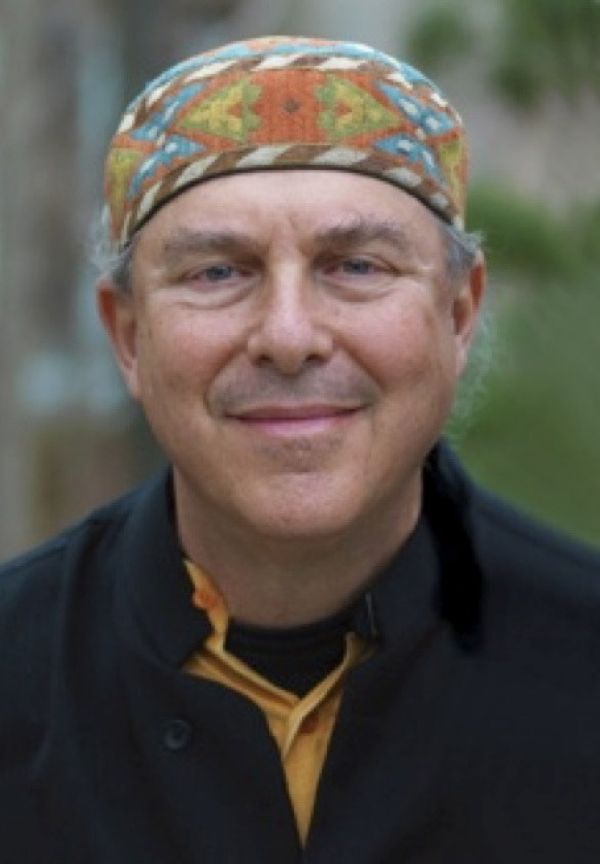
On February 27, 2001, Shabda Kahn was was appointed Pir (lineage holder) of the Sufi Ruhaniat International in the stream of the great mystic Hazrat Inayat Khan, his disciple, Murshid Samuel Lewis and his successor, Pir Moineddin Jablonski.
Shabda was born in New York City, the second child of German Jewish immigrants who fled just before the holocaust. Visiting his house in the early 70’s was like being in a European home. His parents had a close and loving circle of friends and extended family that would meet for most holiday occasions around the large dining room table now in Shabda’s home in San Rafael. Shabda has always had a gift for the mechanical and the technological, coupled with a strong sense of aesthetics. He attended McGill University in Canada and City College of New York. His mother thought he might become an architect. Instead, while living in the Bay Area, he became a musical instruments maker under the business name Sound Instruments. He received guidance from Hamza El Din and Pandit Pran Nath in making frame drums, dumbeck drums, tambouras and ektars in a small garage workshop.
While still in New York, Shabda heard “Baba” Ram Dass, who had just returned from India, give a talk on the radio. He was moved to give away everything—but not his Martin guitar—drop out and become a “seeker.” He heard Pir Vilayat Inayat Khan speak in New York, and set out to attend the June 1969 Sufi Camp in Colorado taught by Pir Vilayat. It was there that he met several of Murshid Sam Lewis’s students including Wali Ali Meyer. He met Murshid Sam in California before travelling to be with Baba Ram Dass in Franklin, New Hampshire for the summer of 1969. After that, he was inspired by the perfume of the connections with the Sufis and Murshid Sam and moved to California to be with the remarkable teacher. He was initiated by Murshid Samuel Lewis on February 16, 1970. In the Fall of 1970 Shabda traveled with Murshid for five weeks as his personal assistant on the East Coast. A month later, December 28, 1970, Shabda was staying at Murshid’s home, the Mentorgarten, the morning Murshid Sam fell down the stairs. Shabda drove Murshid to the hospital. Murshid Sam died several weeks later. Shabda received his name from Pir Vilayat Inayat Khan in the Spring of 1971.
When Murshid Sam died, Shabda became one of Pir Moineddin’s secretaries and assisted leading the Wednesday night dance meeting, eventually taking over when Moineddin could no longer lead it. As Moineddin’s condition worsened, he requested that Pir Vilayat initiate Shabda as a Sheikh. This occurred on February 5th, 1977, at the tomb of Hazrat Inayat Khan in India on the 50th Anniversary of Inayat’s passing. In October 1995, at a Sufi camp in Maui, Hawaii, Pir-o-Murshid Hidayat Inayat Khan, spiritual leader of the International Sufi Movement, initiated Shabda as a Murshid.
Shabda met his second great teacher, Pandit Pran Nath, in 1972, and began the daily practice of North Indian Classical vocal music in the Kirana style, following in the footsteps of Hazrat Inayat Khan. Pandit Pran Nath was a master vocalist and Sufi mystic. Pran Nath planted an 800-year-old oral tradition of Chisti Sufi Vocal Music in the Western World and requested that Shabda carry on the lineage teaching under the name of the Chisti Sabri School of Music. This has become an umbrella for Shabda’s vocal music teaching and Raga singing performances.
Shabda and Tamam met in 1974 when they were both in musical groups; he was guitar player and singer in the Sufi Choir and she sang in the Fairfax Street Choir. They lived together in the Marin County Sufi khankah called the Garden of Allah, where classes and events were ongoing. They married April 19, 1976, the date astrologically chosen by Pandit Pran Nath, in a ceremony performed by Pir Moineddin on a sunny day, near the top of Mount Tamalpais.
In 1969 Shabda met Joe Miller, the great American mystic who lived above the Theosophical Society in San Francisco. Joe Miller, and his wife Guin continued to be guiding lights for him and many of the Sufi family throughout Joe’s later life. For many years Shabda would leave his retail store—Dreamweaver—in San Francisco on Union Square at 6 PM, buy some flowers for Guin, stop at Mrs. Fields for cookies for Joe, and then they would all watch Monday night football and talk story.
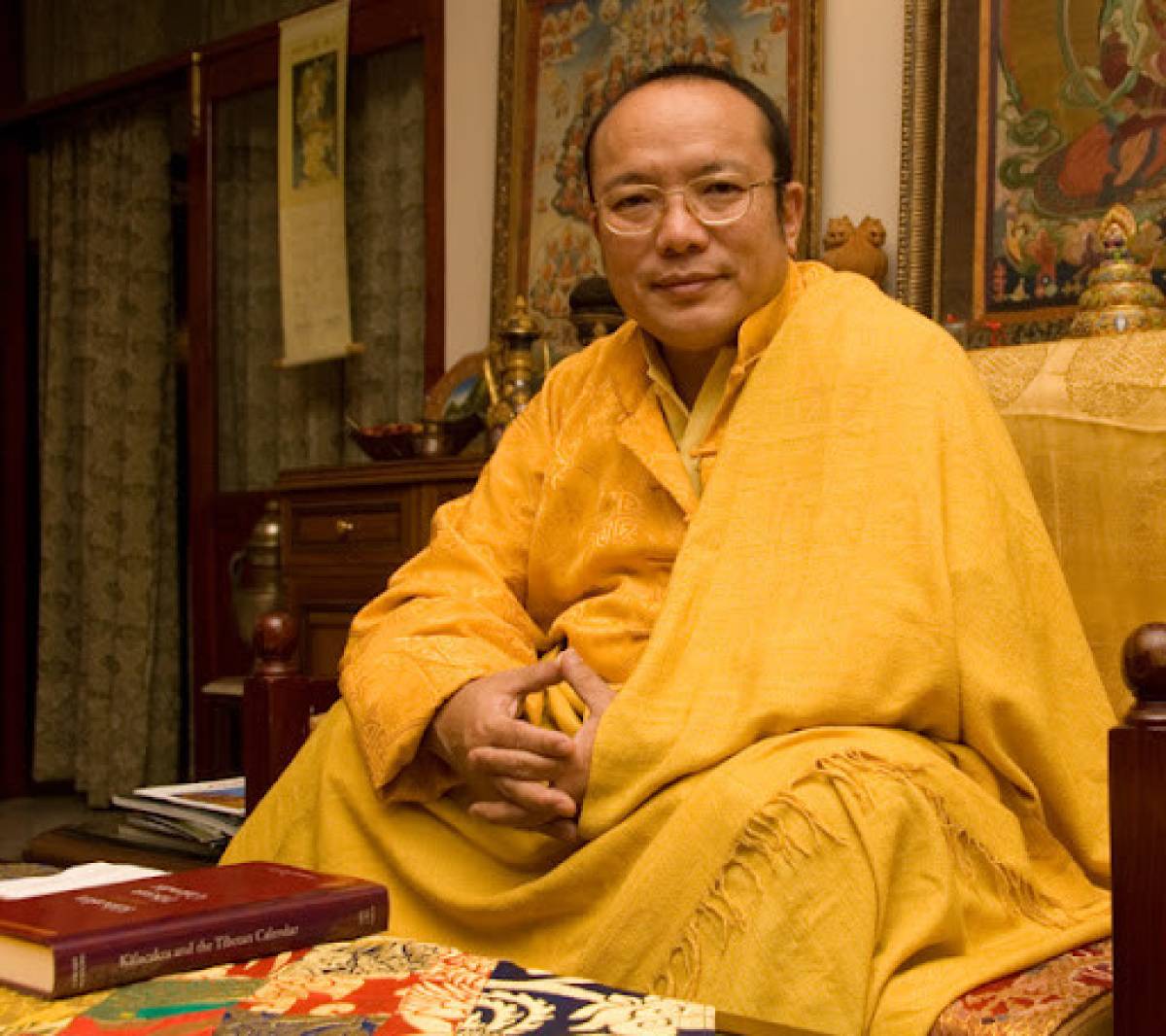 |
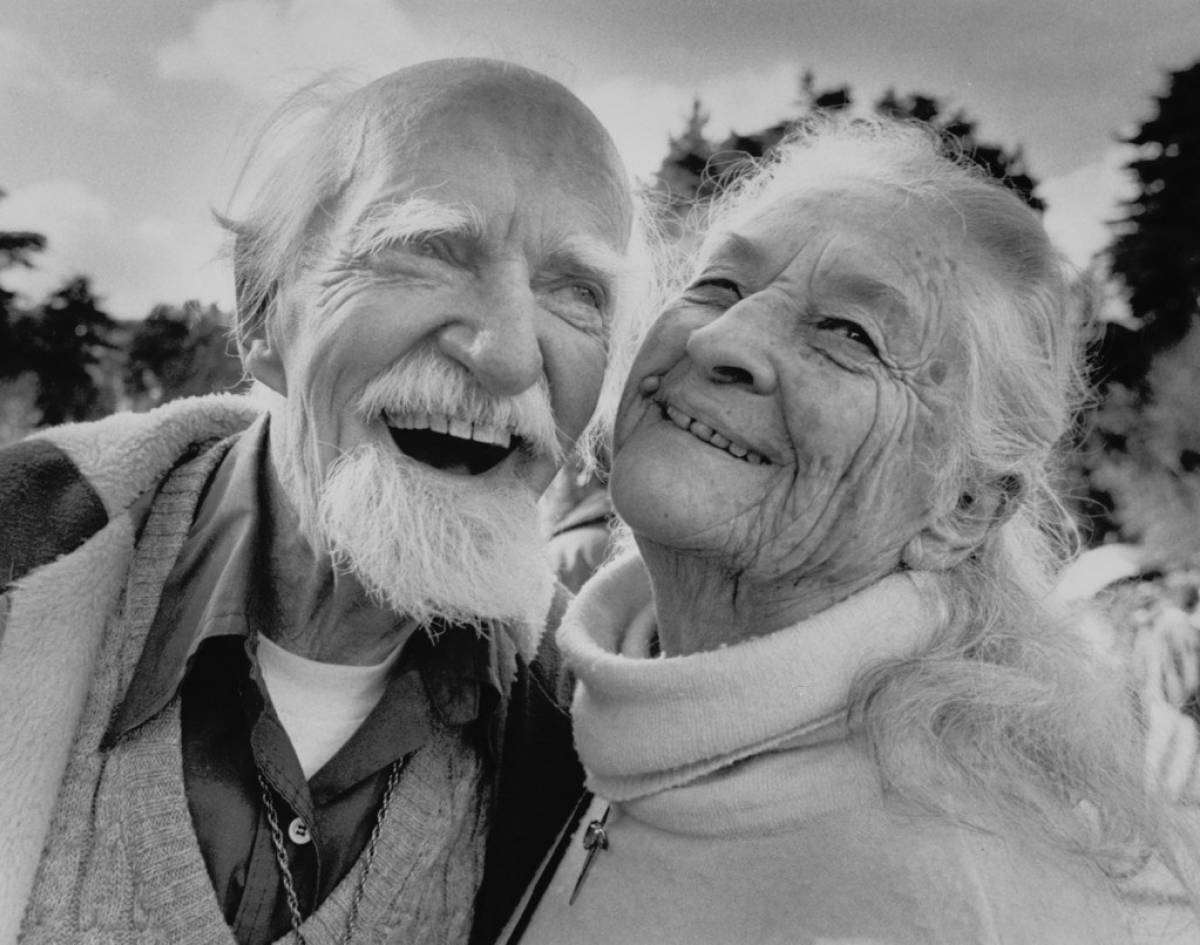 |
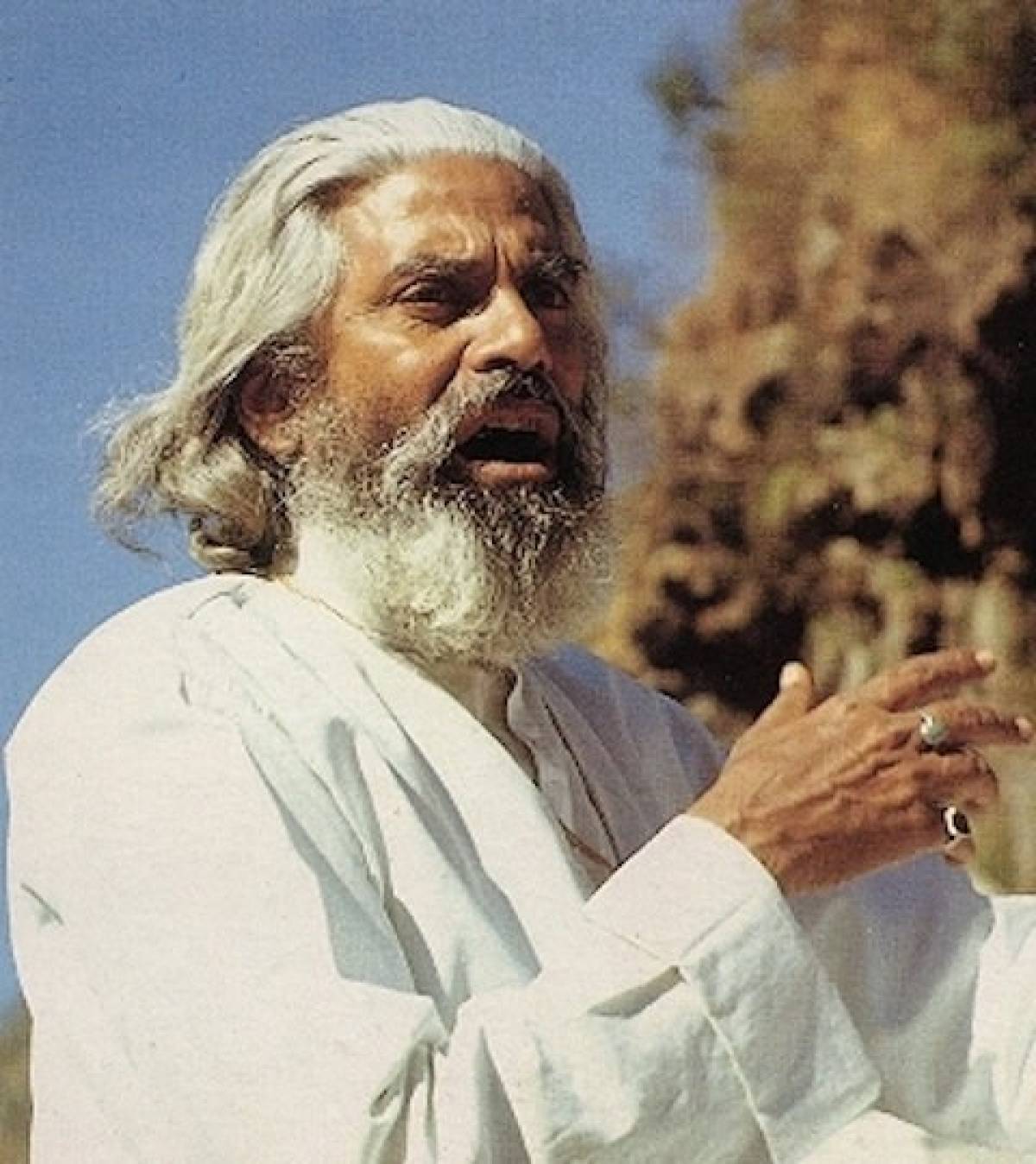 |
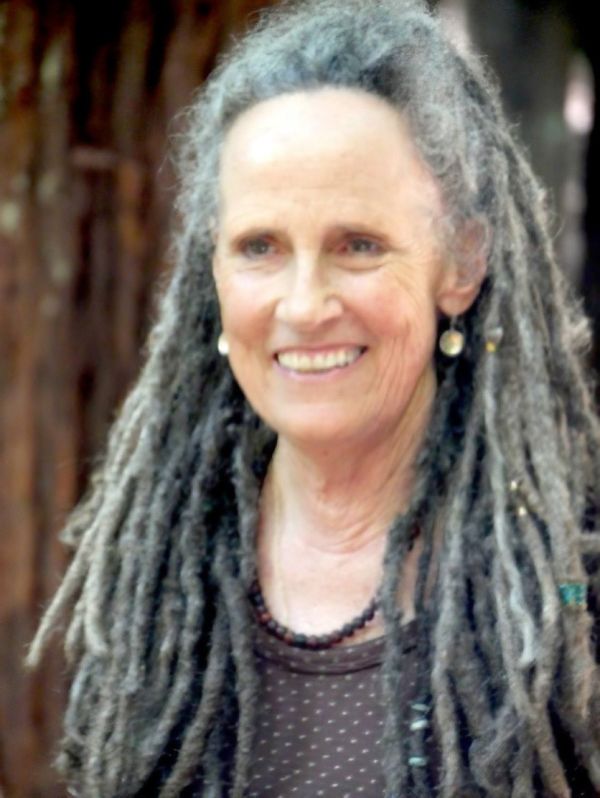
In 1981 Shabda and Tamam had the good fortune to make a strong connection with the 12th Tai Situ Rinpoche, a venerated Tibetan Buddhist incarnate Lama of the Kagyu Lineage, who has given them wonderful guidance and friendship over the years. In the late nineteen-eighties, at Rinpoche’s request, Shabda set up and directed a series of enormous events under the banner of Pilgrimage for Active Peace: a ceremony on Mount Tamalpais with the entire Buddhist community of California, luncheon at the Fairmont Hotel and a talk at Grace Cathedral—all featuring HH the Dalai Lama. This happened just a week after the HH Dalai Lama won the Nobel Peace Prize.
As Murshid Sam was holding the stream of Zen under Roshi Nyogen Sensaki, one of the first Japanese Buddhist teachers in America, Shabda has a continuous connection to the 12th Tai Situ Rinpoche. A photo shows Rinpoche placing a garland of marigold flowers on the tomb of Hazrat Inayat Khan, before a Hazrat Inayat Khan’s URS Celebration at the Dargah.
In 1998, The Institute of Noetic Sciences invited Shabda and Tamam to lead a group to Morocco to attend the Sacred Music Festival and explore the Sufi tradition there. Around the same time Shabda met Sidi Ahmed Kostas, Khalif of Fez in the Moroccan Qadiri Sufi Order at the Sufi Symposium in the Bay Area. Under Sidi Ahmad’s guidance, Shabda and Tamam took several groups of Sufis on pilgrimage to Morocco from 1998-2001.
In November 2003 Shabda joined Pir Elias Amidon of The Sufi Way (Inayatiyya) lineage to lead an Interfaith Peace Pilgrimage to Syria. This included a journey to the 6th century mountain retreat of Deir Mar Musa and an interview on Syria’s leading TV news station. They were honored guests at the mosque of the Grand Mufti.
Shabda helped organize the Living Peace Projects founded by Sufi Murshid Karimbakhsh Witteveen of the International Sufi Movement to hold hands on the universal principles of Loving Kindness and Compassion, promote world harmony between religions and stimulate global cooperation between spiritual leaders of different traditions, educators, scientists and politicians. The 12th Tai Situ Rinpoche, and many spiritual ambassadors have become involved, including a Rabbi, Swami, Bishop, Mevlevi Sheikh, Sikh leader, scientists, educators and politicians. They go on pilgrimage to world locations such as India, Turkey, Italy and Greenland to promote awareness and bear witness to humanity’s effect on the world as fundamental for living peace. A theme throughout has been climate change, the importance of healthy water and responsibility to Mother Earth.
Shabda has taken the Dances of Universal Peace and Sufi teachings to places such as Europe, New Zealand, Australia, Turkey, Russia, India, Colombia, Chile and Ecuador as well as all over the USA. The younger generation has particularly shown up in South America and Turkey.
In 2003 Shabda began a new retreat form called the Sufi Sesshin, alternating sitting meditation and joining hands in the Dances of Universal Peace, begun in the 1968 by Murshid Sam Lewis.
Shabda brought together Imam Bilal Hyde, Faisal Muqaddam, and Murshid Wali Ali Meyer—four distinct voices into a single voice to create the book Physicians of the Heart, A Sufi View of the Ninety-Nine Names of Allah, published in 2011.
Shabda spends his time holding and managing the activities of the Sufi Ruhaniat International which involves a great number of Zoom conferences. When home his daily life includes early morning prayer, meditation and Raga singing. He also walks every day with his camera, as an avid bird photographer.
Shabda said in an interview with the Pacific Sun in 1995: “Sufism is a mystic path…based on the Awakened human Heart recognizing its Unity with the Divine. The signs of this experience are the emergence of love, tolerance, compassion, and courage. The Sufi attempts to be in the world but not of it, where one’s inner condition is not based on circumstance. Sufism is universal in nature and honors all the great Messengers from the world’s religions. It is not based on the way, path, or vehicle one takes to arrive at this Experience. So even though its current forms take many shapes from the mystic side of Islam, it can be claimed by no religion.”
Listen to the River of Guidance recording, a beautifully compiled interview with Pir Shabda speaking about his life, teachers, and the spiritual path, with musical excerpts of him singing, leading zikr and teaching.
Top photo of Pir Shabda Kahn courtesy of Beverly Duperly